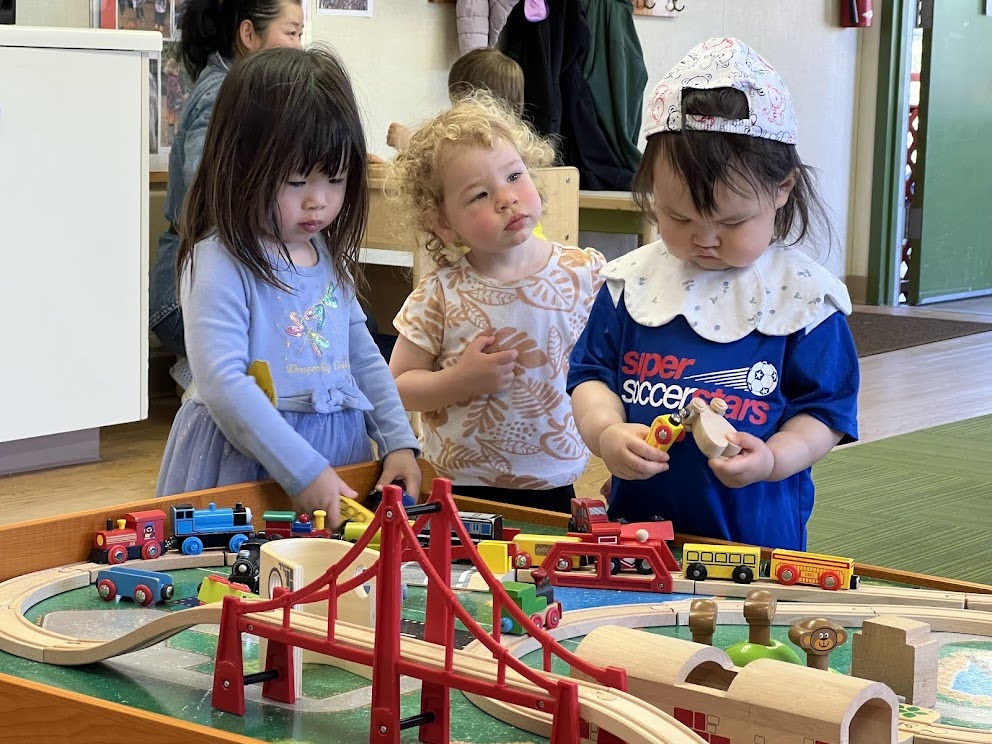Building Friendships, Confidence, and Community Together
At Mountain View Parent Nursery School, our toddler program offers a warm, supportive, and enriching first school experience for both toddlers and parents. Specifically designed for toddlers aged 15 to 24 months, our class meets once a week for two hours, making it an ideal introductory experience that gently eases your child into socializing and learning in a collaborative, play-based environment guided by caring, experienced teachers.

Why Families Love Our Toddler Program
- Socialize and Connect: Toddlers develop essential social skills through gentle guidance and playful interactions, while parents build supportive relationships within our welcoming community
- Hands-on Exploration: Enjoy sensory-rich activities both indoors and outdoors, from imaginative role-play in our cozy classroom to active exploration in our expansive, safe outdoor play area
- Guided Parent Participation: Parents actively participate, spending quality time with their child each week. Additionally, weekly parent education sessions provide practical tips and insights on toddler development, fostering confidence and understanding in your parenting journey.
- Trusted, Experienced Teachers: Our credentialed teachers foster an atmosphere of warmth and trust, helping your child confidently explore their environment and build positive relationships.
.jpg)
Join a vibrant community where you and your toddler can thrive together!
Ready to Discover More?

.jpg)
 Susan Pence
Susan Pence